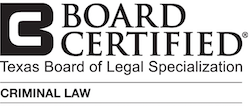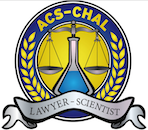DWI FAQ
What Do I Do If Pulled Over?
- REMAIN SILENT! You are likely being videotaped and recorded. As such, most officers will likely try and illicit incriminating statements to use as evidence against you. It is best to say as little as possible to avoid any information which could be skewed in the state's favor and used against you in the later proceedings.
- BE POLITE. It is always best to remain polite and courteous to the police, even when being questioned and investigated. Having a confrontational attitude can only lead to bad consequences, possibly from the officer and again when perceived by prosecutors, judges and a jury if it proceeds to trial.
- REFUSE ALL TESTS. You have the right to refuse all field sobriety tests, including the horizontal gaze nygstagmus test, known as the "HGN." It is very unlikely that you will be released even if you try these exercises. Most citizens cannot "pass" the SFSTs satisfactory to arresting officers. They are judged subjectively by the investigating officer and they decide whether you passed or not. YOU HAVE THE LEGAL RIGHT TO REFUSE ANY AND ALL FIELD SOBRIETY TESTS! THE CHOICE IS YOURS.
- REFUSE THE BREATH TEST. There are two types of breath testing devices used in Texas. The Intoxilyzer 5000 is what is used ONLY after the accused is placed under arrest. It is maintained at the jail, but can also be housed in the BAT Mobile (breath alcohol testing unit). According to the State of Texas Breath Testing Program officers cannot even ask you to take the breath test unless you are already under arrest for DWI. You are already arrested by this point, so don't make the mistake of thinking they will "un-arrest" you should you "pass" the breath test by blowing under a .08. The other device used is the Portable Breath Test (PBT). The PBT is used by many officers to help determine whether to make an arrest, and is required by troopers employed by the Department of Public Safety (DPS). The courts do not allow officers to testify at trial on what the exact BAC reads when tested. The police can only testify regarding "the presence of alcohol" after a PBT.
- REFUSE A BLOOD TEST. NEVER voluntarily submit to a Blood Test. There is no way to determine ahead of time whether the blood vial was correctly prepared, labeled, transported, or stored. Force the arresting officer to obtain a search warrant to perform this invasive procedure from your body! Be careful, as well, from letting an officer coerce you into taking a blood test. If you voluntarily let the officer draw blood, you cannot later attack the search warrant in court. If the officer is forced to get a search warrant, we can attack it later to a Judge.
Should I Take The Field Sobriety Tests?
No. You should not take the Standardized Field Sobriety Tests (SFST's), even if you think you can pass.
- The SFSTs are designed for failure!
- There is no legal requirement that forces you to take the roadside tests, so choose your right to refuse!
- You do not know the "clues" the officer is looking for, which will ultimately lead to your arrest and will only make your conviction possibly more secure.
- You do not know whether the officer left out information with the instructions prior to the test.
- The officer likely did not tell you of your right to refuse the SFST's.
- There are approximately 47 different types of nystagmus, and 38 different causes...and the officer is ONLY trained to detect ONE. There are many confounding factors which can skew this results of the HGN, so do not take it!
- Many officers do not follow the standardized protocol when administering these tests, which can lead to an invalid arrest.
How Can You Attack The SFST's?
- The Standardized Field Sobriety Tests (SFST's) are NOT scientific. The original "studies" were evaluated by people with a vested interest in getting their version of the so-called tests accepted by law enforcement agencies and the creators have continued to profit financially from them.
- The officer was NOT properly trained. The officers are usually trained in a law enforcement environment by their friends and colleagues. The officers are required to pass a very simple certification test in order to qualify to testify at a trial that they are "certified" to administer SFSTs. Interestingly, almost every officer who testifies at a trial has passed this certification and is an "expert". Carl David Ceder has passed the same certification that the officers have, and is therefore able to effectively examine how well they have instructed and demonstrated the tests. Many times the officers perform the testing improperly and as a result, Carl can attack the video performance in the courtroom, in front of the jury to discredit the SFST evidence.
- The officer did not demonstrate the SFST's in accordance with NHTSA. The SFST's must be done in accordance with NHTSA protocol OR the results are COMPROMISED (as stated clearly within the NHTSA manual).
- The officer did not properly instruct you on how to perform the tests.The arresting officer must follow the standardized protocol while both demonstrating AND explaining the tests.
- >The officer had you perform the tests under improper conditions. Environmental factors can inhibit and/or interfere with the performance of the tests, yet many times the arresting officer will NOT take this into account.
- The officer did not take Age and Weight into consideration. Age and Weight CAN make someone an improper candidate for the SFST's. If you are 50 pounds over your recommended weight, or over 65 years of age, you should not be required to perform the tests according to NHTSA.
- The officer did not take a physical disability into consideration. A physical disability can make you an improper candidate for the SFST's. There might be specific reasons why someone is not qualified to perform the tests. Any given individual might have certain medical, personal, or physical limitations and/or injuries which could make a peson an improper candidate for the SFST's.
- Psychological Conditions. Phobia of tests, being or anxious, fear of police, fear of performance tasks, being depressed, or past emotional trauma can lead to poor performance on the SFST's, and many times the arresting officer does not take these factors into account.
What Are The Officers Looking For When Arresting For DWI?
The Standardized Field Sobriety Test (SFST) Program divides the DWI investigation into three parts: 1) Vehicle in Motion (VIM -driving facts); 2) Personal Contact (PC - your appearance); and 3) Arrest Decision (SFSTs - HGN, WAT, and OLS).
Vehicle in Motion, Phase 1:
During the VIM portion of the investigation the officer is watching the vehicle for the following clues. The list of clues or cues, as originally published by the National Highway Traffic Safety Administration (NHTSA) is as follows:
- 1.Turning with a wide radius
- 2. Straddling the center or lane marker line
- 3. Appearing to be drunk
- 4. Almost striking an object or vehicle
- 5. Weaving
- 6. Driving on other than designated roadway
- 7. Swerving
- 8. Slow speed (driving 10 mph or more under the speed limit)
- 9. Stopping, without cause, in the traffic lane
- 10. Following too closely
- 11. Drifting
- 12. Tires on center or lane marker
- 13. Braking erratically
- 14. Driving into opposing or crossing traffic
- 15. Signaling inconsistent with driving actions
- 16. Slow response to traffic signals
- 17. Stopping inappropriately (other than in traffic lane)
- 18. Turning abruptly or illegally
- 19. Accelerating or decelerating rapidly
- 20. Headlights off
You will notice that "speeding" is not one of the listed clues, nor is defective tail lights. In other words, many DWI investigations begin with non-DWI traffic stops. The DWI investigation then begins due to issues that arise during the "Person Contact" portion of the stop.
Our office has enjoyed great success in DWI trials during cross-examination by showing that there were no "drunk driving" facts in the case. Many officers have spread the word that it is better to follow the potential DWI suspect for some distance in order to observe traffic violations that are on the list. This allows the testifying officer to try and secure the probable cause to make and support the actual DWI arrest later when attacked by a skilled criminal defense defense attorney.
Personal Contact, Phase 2:
As the officer approaches the vehicle they are instructed to gather evidence by observing and interviewing the driver. The officer is using face to face observation and will be...
Looking for:
- Blood shot eyes
- Soiled clothing
- Fumbling fingers
- Alcohol containers
- Drugs or drug paraphernalia
- Bruises bumps or scratches
- Unusual actions
Listening for:
- Slurred speech
- Admission of drinking
- Inconsistent responses
- Abusive language
- Unusual statements
Smelling for:
- Alcoholic beverages
- Marijuana
- Cover up like breath sprays
- Unusual odors
The officer will ask questions in attempt to interview you. He may ask you to produce two things simultaneously, such as your license and registration, and is alert for a driver who:
- Forgets to produce both documents upon request
- Produces documents other that the ones requested
- Fails to see the license, registration, or both while searching through wallet, or purse, etc
- Fumbles or drops wallet, purse, license or registration
- Is unable to retrieve documents with finger tips
* The officer may ask interrupting questions or distracting questions such as "What time is it" as you are searching for your documents. The officer is now observing to see if the driver:
- Ignores the question and concentrates on the license or registration search
- Forgets to resume search after answering the question
- Supplies grossly incorrect answer to the question
* If the driver seems impaired due any of the above reasons, the officer will ask the driver to exit the vehicle. As the driver exits, the officer will gather evidence of impairment from a driver who:
- Shows angry or unusual reactions
- Cannot follow instructions
- Cannot open the door
- Leaves the vehicle in gear
- "Climbs" out of vehicle
- Leans against vehicle
- Keeps hands on vehicle for balance
Arrest Decision, Phase 3:
Phase 3 consists of the demonstration and performance on the Standardized Field Sobriety Tests (SFST's) and the Preliminary Breath Test, both designed to gather probable cause to arrest the suspect for DWI.
HGN - Always begins with the left eye. Each eye is examined for 3 specific clues. The maximum number of clues in one eye is 3 and the maximum number per suspect is 6. According to the NHTSA manual of 2006, if 4 or more clues are evident it is likely that the suspect is impaired above the legal limit of .08.
The clues the officer is watching for:
When the eye moves side to side does it move smoothly or does it jerk noticeably?When the eye moves as far to the side as possible and is kept at that position, does it jerk distinctly?As the eye moves toward the side does it start to jerk prior to a 45 degree angle?VGN- is involuntary jerking of the eyes when moving up and down.
Walk and Turn - Administered and interpreted in a standardized manner, ie, the same way every time. Officers administering the Walk and Turn test observe the suspect's performance for 8 clues:
- Can't balance during instructions
- Starts too soon
- Stops while walking
- Doesn't touch heel to toe
- Steps off the line
- Uses arms to balance
- Loses balance on turn or turns incorrectly and
- Takes the wrong number of steps
One Leg Stand - Requires the suspect to stand on one leg and count to 30 out loud as "one thousand and one, one thousand and two, one thousand and three, etc…"
The officer carefully observes the suspect's performance and looks for 4 specific clues:
- Sways while balancing
- Uses arms to balance
- Hops
- Puts foot down
What Do I Do When Arrested?
If you are being arrested, relax as much as possible, you are going to jail – there is NOTHING you can do to change that! The officer is not going to let you go; no matter what you say, do, or blow into. You cannot take the breath test unless you are already under arrest and they will not un-arrest you even if you blow under a .08on the Intoxilyzer 5000. Therefore, do not take the breath test because if there is a false-positive result, the state will claim this reading indicates you are impaired.
Again, because you will still be under arrest and in jail regardless of the result of a breath or blood test, there is no reason for you to give the police "junk science" evidence that they will use against you later. Once under arrest, stand on your constitutional right to remain silent and not give evidence to further incriminate yourself.
How Do I Get Out Of Jail?
It is not difficult to make arrangements to get out of jail. Carl will answer his phone around the clock to help facilitate the process for you or your loved one. He will answer his phone promptly, unless he is conducting a courtroom hearing or in trial.
If you make other arrangements for your jail release, then call Carl as soon as possible! It is not unusual for you to have made a quick decision in employing just any attorney to assist you in getting out of jail. Or perhaps you called a bail bondsman to help get you out because you didn't know which attorney to call. This is understandable because many people have not been through this process before. While in a jail cell you are not in the best situation to deal with the stressful decision you are making. You probably just want to get out of jail. The good news is that you can correct your situation by calling The Law Offices of Carl David Ceder, PLLC, to help. The courts usually allow a qualified attorney to substitute in on a case when the situation allows.
What About My Driver's License?
Hire The Law Offices of Carl David Ceder, PLLC, within 15 days of the arrest so he can contest the driver's license suspension you have received. He almost always appeals the upcoming suspension - if you don't fight, the license will 100% be suspended. By filing for an ALR hearing, the suspension is put on hold and will not proceed until we have a revocation hearing in front of an administrative law judge (ALJ). The suspension hearing is a great opportunity to have a first shot at a cross-examination of the testifying officer. Carl can lock in mistakes in their performance as well as mistakes in their testimony, which they will have to later admit and be consistent with, if the case later proceeds to trial.
How Could I Be Arrested For DWI When I Was NOT Intoxicated?
1. Assuming that driving behavior is related to alcohol consumption – weaving due to reaching for cell phone or other distraction but not because of intoxication (texting while driving!).
2. Turning odor of alcohol into intoxication and using it as evidence of excessive consumption. Other factors that may cause an odor of alcohol include mouthwash, denture solutions, or having an alcoholic drink accidentally spilled on one's clothes, minimal consumption, etc.
3. Failing to ask pertinent questions about driver's medical problems – many medical issues imitate clues of intoxication or are too personal to discuss with DWI cop. Officer fails to explain how past medical issues that you no longer consider a disability can cause you to fail to perform the test to his satisfaction.
4. Failing to disqualify persons who are physically unable to pass the SFSTs. A great number of persons cannot pass these exercises even while totally sober and not when demanded to perform them on command, under pressure, and while knowing if you fail, you will be arrested. The officer has no comparison of how you would perform the same test on your best day.
5. Being aware of, but failing to eliminate, distractions during SFSTs such as loose gravel, surfaces that are not level, environmental issues (misting, wind blowing, darkness), flashing lights, etc. These factors are under his control since he picks the time and place for the testing.
6. Failing to give proper instructions during the instructional phase of the SFST's. If any one of the SFST elements is changed, the validity of the test is compromised! Officers will later say that he "substantially complied" even though any deviation on your part results in failure.
7. Failure to give proper instructions during the administration phase of the exercise – if any of the SFST elements is changed, the validity is compromised! The Officer must give proper instructions and demonstrate the test to the citizen in the proper manner before the Walk and Turn Test and One Leg Stand Test can be performed. If the instructions or demonstration is done incorrectly by the officer, then the results cannot legitimately be used against the citizen.
8. Failure to follow proper sequence of the SFST's per the NHTSA Manual – if any of the SFST elements is changed, the validity is compromised! The officer cannot just make it up as he goes, although this is how many officers do their job unfortunately.
9. Administering invalid "tests" which are not supported by research studies – the officers are using exercises which have a 50/50 reliability rate (why not just flip a coin?). Many DWI cops will use tasks that they know have been rejected by the researchers and are not part of the "standardized" program.
10. Tricking the person/driver to take the breath test by suggesting they will be released if they pass the test. Also, reading the paperwork to the person incorrectly or using outdated paperwork – which can render the breath test result suppressible. Believe it or not, there are rules that the cops must follow in order to get the breath test results into a courtroom.
Which DWI Defense Attorney Should I Hire?
Watch out for lawyers who promise a lot on the front-end, but who fail on the back-end to produce results. These lawyers will take your money and then walk you across the courtroom to simply plead you "guilty" without a fight. "Dump truck" lawyers sign up as many cases as possible, for a wide variety of criminal charges, and do not invest much time in ANY of them. Some lawyers sign you up after an arrest, then you never hear from them again. With these lawyers, communication is infrequent, and you never seem to hear from them regarding what is the best avenue to try and successfully fight your DWI charge. They will walk you up to the judge like a high-paid escort service, plead you guilty, and then disappear. Carl will stay with you throughout the entire ordeal of the DWI arrest, and give you the effective courtroom representation you deserve.
Why Should I Hire Carl David Ceder For My DWI Case?
Carl has the ability to fight EVERY DWI charge and will give you a very good chance to WIN. That is why he is committed to always staying on the cutting edge of DWI defense. Carl is Certified in NHTSA Standardized Field Sobriety Testing, which is the same certification arresting officers receive at the police academy when learning how to properly conduct a DWI invesigation. He has also received Certification as a Field Sobriety Testing Instructor, which means he is qualified to actually teach Standardized Field Sobriety Testing to police officers. A Carl is also a Certified Technician of the Intoxilyzer 5000, which is the Breath Testing device used by law enforcement in Texas. Additionally, Carl has received Advanced Training in the Horizontal Gaze Nystagmus (HGN) Test, which is one of the Standardized Field Sobriety Tests used by police officers to determine whether someone may have been Driving While Intoxicated. He has also completed a NHTSA Drug Evaluation and Classification (DRE) Course, which is the functional equivalent to the ARIDE Program (Advanced Roadside Impaired Driving Enforcement).
Carl will attack your case from every angle beginning with the probable cause for the initial traffic stop, to the demonstration and instruction of the Standardized Field Sobriety Tests (SFST's), as well as if there is a chemical test (breath or blood), including trying to fight all license suspensions. Carl will not concede ANY point of your case: he will fight to keep your driver's license, help you get an occupational license (if necessary) in the event of a suspension, and will promise to always prepare to help you give your best chance to win your DWI case from start to finish.
How Do I Know If My Attorney Is Qualified To Handle My DWI Case?
Look at their qualifications, examine the website for substance, and ask them the tough questions about your specific case and how they will handle it.
Questions to ask include:
- Do they have a background or experience on the the breath testing program as used in Texas?
- How many DWI cases have they tried to a jury AS A DEFENSE ATTORNEY (NOT AS A PROSECUTOR!)?
- Of those tried, how many were won? How many were lost?
- Have they EVER tried a breath test case and WON AS A DEFENSE ATTORNEY (NOT AS A PROSECUTOR!)?
- What are some trial stories similar to your specific case?
- When was the last time they performed studies on an Intoxilyzer 5000?
- Are they certified as a Practitioner in NHTSA Standardized Field Sobriety Tests (SFST's)?
- Are they certified as an Instructor in NHTSA Field Sobriety Tests (SFST's)?
- Have they completed any advanced training in DWI breath or blood testing?
- Have they completed any advanced training as a Drug Recognition Expert (DRE)?
- Can they explain the validation studies that were done to support the SFST's that you performed or were asked to perform?
- Can they identify who Dr. Marcelline Burns is and describe her function in the area of DWI defense?
- Can they identify all the "clues" on the SFST's and will they explain the NHTSA position of the test results that were obtained?
- Can they explain retrograde extrapolation, RFI interference, mouth alcohol, interferent alerts, the sample chamber, the diagnostic test, the slope detector, the partition ratio, the filter wheel, etc. in regards to the Intoxilyzer 5000?
Difference Between DWI And DUI In Texas?
Unlike Texas, most other states refer to their major drunk driving offense as DUI, not DWI. As such, it is easy to confuse the two terms. The most important difference is that a DUI in Texas is available only for a minor, someone who is under 21 years of age. In addition, police do not have to prove you are intoxicated to charge you with DUI. The arresting officer only has to "detect the presence of alcohol" in some form or fashion in the minor's system. This is usually done by the officer smelling alcohol on the person's breath. The controlling statute is the Texas Alcohol Beverage Code § 106.04.
In Texas, DWI, or Driving While Intoxicated (1st), is a crime that can carry with it up to 180 days in jail, and up to a $2,000 fine. DWI carries with it a harsher punishment and penalties than DUI. In order for the state to convict someone of DWI, they must prove that the driver of a motor vehicle either had above a .08 BAC, or lost the normal use of their mental or physical faculties due to the introduction of alcohol, a drug, or a combination of the two. You can receive a DWI at any age (above or below 21).
The two laws are similar in one very important aspect. These laws are designed to prevent you from driving a motorized vehicle under the influence of anything that will impair your ability to properly operate that vehicle.
The underlying theory for this is very valid and is a good public policy decision. The idea is to prevent potential major injury or even death from the improper operation of the vehicle.
If you are arrested for driving under the influence, you should immediately contact a qualified attorney to advise you of your rights. Do not attempt to simply do some research and handle the situation yourself (as some people try to do more often than they you would think). You need someone to walk you through the process. Carl David Ceder has worked on both DWI and DUI cases, and has actually received acquittals ("Not Guilty" verdicts) on each charge. Call The Law Offices of Carl David Ceder, PLLC, immediately to set up a consultation for whichever charge you are facing.
Is There A Videotape Of My DWI Arrest?
There is a videotape associated with almost every DWI arrest. Sometimes it can take a couple of weeks to obtain copies, however. Shortly after the video is received, a conference is recommended to review the video to develop a strategy for the case. The video is crucial to the success (or failure) of any DWI case. The performance of the officer in administering the SFST's should be scrutinized, among other things. It is vital to hire someone that is well-versed in DWI law, as many aspects of the video can be redacted pursuant to current case law.
What If I WAS Drunk? Do I Have A Case?
YES!!! The police must administer the SFST's in accordance with a strict set of guidelines and rules set out by NHTSA (National Highway Traffic Safety Administration). VERY OFTEN, the police do not follow these standards. NHTSA clearly states that if the officer deviates from the required protocol...THE TESTS ARE COMPROMISED. Often, NHTSA standards can exclude you as a candidate to even perform the SFST's at all because of physical or medical conditions. As well, a well-trained DWI attorney can possibly attack the probable cause for the initial stop. If there was not sufficient reason for the initial stop, the case must be thrown out in its entirety. Thus, it important to always hire an attorney that has knowledge of the many nuances specifically relating to DWI defense.






















